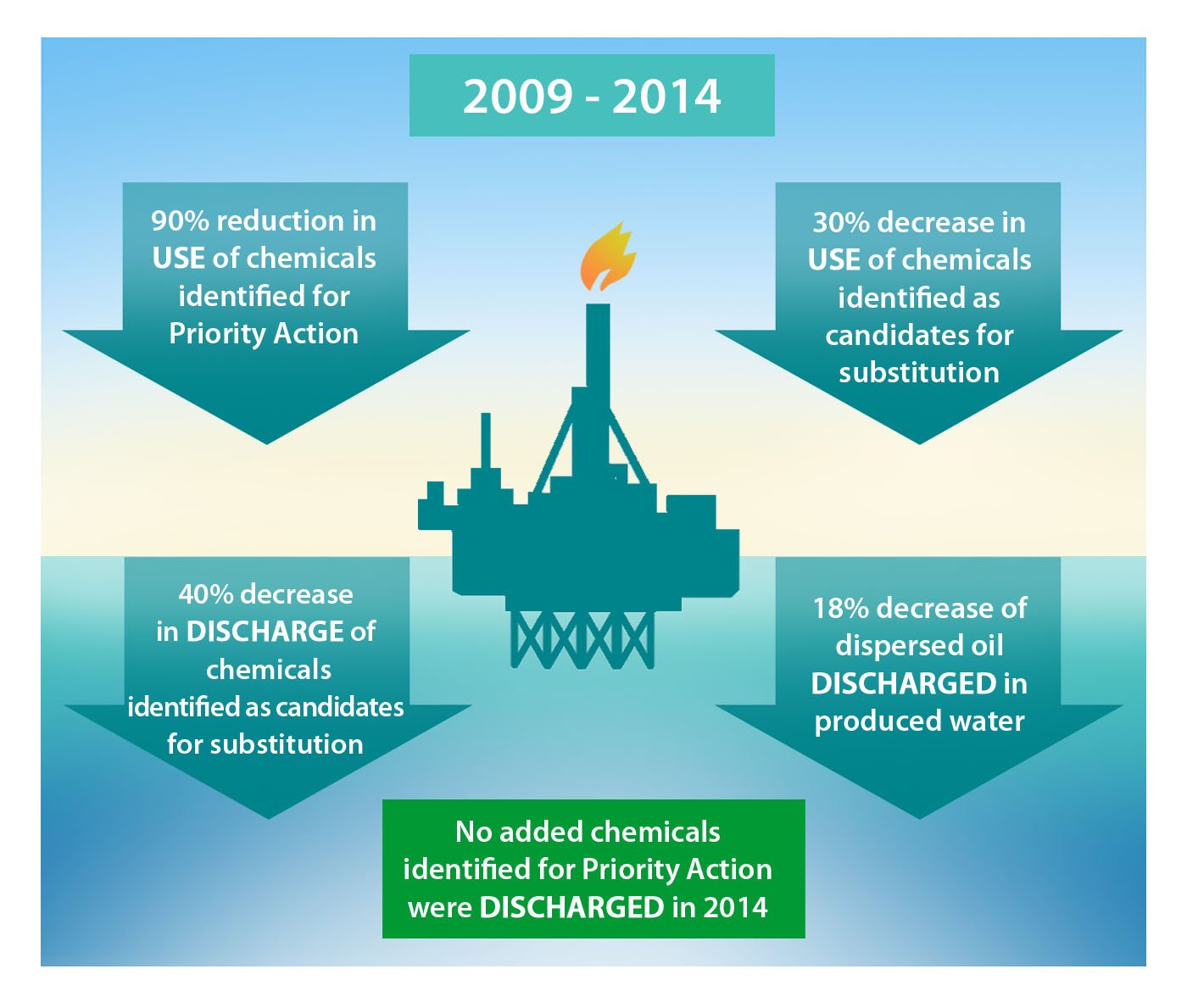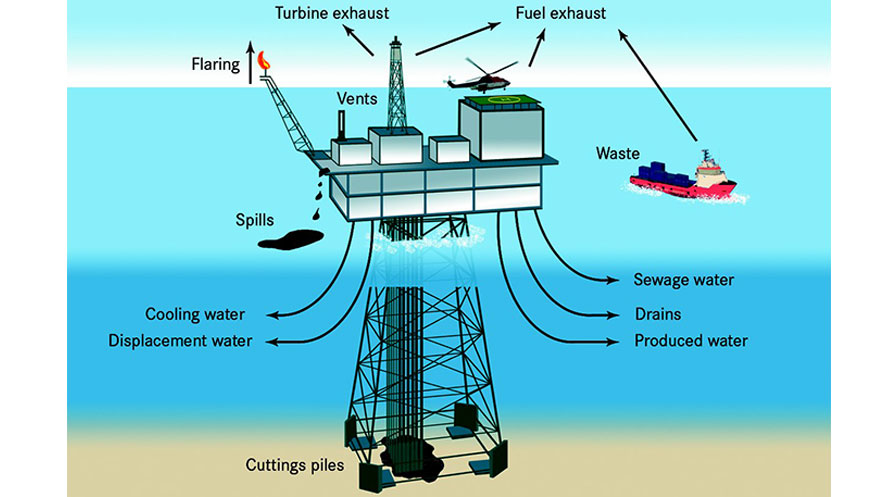According to a new report, downward trends observed in discharges from offshore oil and gas installations can be directly attributed to measures adopted by the Convention for the Protection of the Marine Environment of the North-East Atlantic (OSPAR) and their subsequent implementation by the offshore oil and gas industry.
Hydrocarbons and ‘chemicals’ are routinely discharged to the marine environment during offshore oil and gas operations. However, assessment of the data for the period 2009–2014 shows a decrease in the discharge of both hydrocarbons and the most hazardous offshore chemicals. This is a continuation of the trend reported in the last OSPAR Quality Status Report (QSR 2010).
OSPAR has developed programs and measures in respect of all phases of offshore oil and gas activities and undertakes annual assessments of discharges, spills and emissions from offshore oil and gas installations.
 Since 1986, OSPAR has been taking measures to reduce pollution and minimize impacts on the marine environment from the offshore oil and gas industry. These include:
Since 1986, OSPAR has been taking measures to reduce pollution and minimize impacts on the marine environment from the offshore oil and gas industry. These include:
- Measures to reduce oil in produced water;
- Restrictions on the use and discharge of organic-phase drilling fluids;
- Phasing out and replacement of substitution chemicals, to be implemented by 2017;
- A harmonized mandatory control system to promote a shift towards the use of non-hazardous substances; and
- Banning of dumping or leaving in place of disused offshore installations (subject to derogation in certain specified cases).
To support the objectives of OSPAR’s Offshore Oil and Gas Industry Strategy, almost all offshore operators now follow OSPAR's promotion of environmental management systems for offshore installations and have adopted approved schemes.
OSPAR’s strategic objective with regard to offshore oil and gas activities is to: prevent and eliminate pollution and adopt the necessary measures to protect the OSPAR Maritime Area against the adverse effects of offshore activities by setting environmental goals and improving management mechanisms, so as to safeguard human health and to conserve marine ecosystems and, when practicable, restore marine areas which have been adversely affected.





